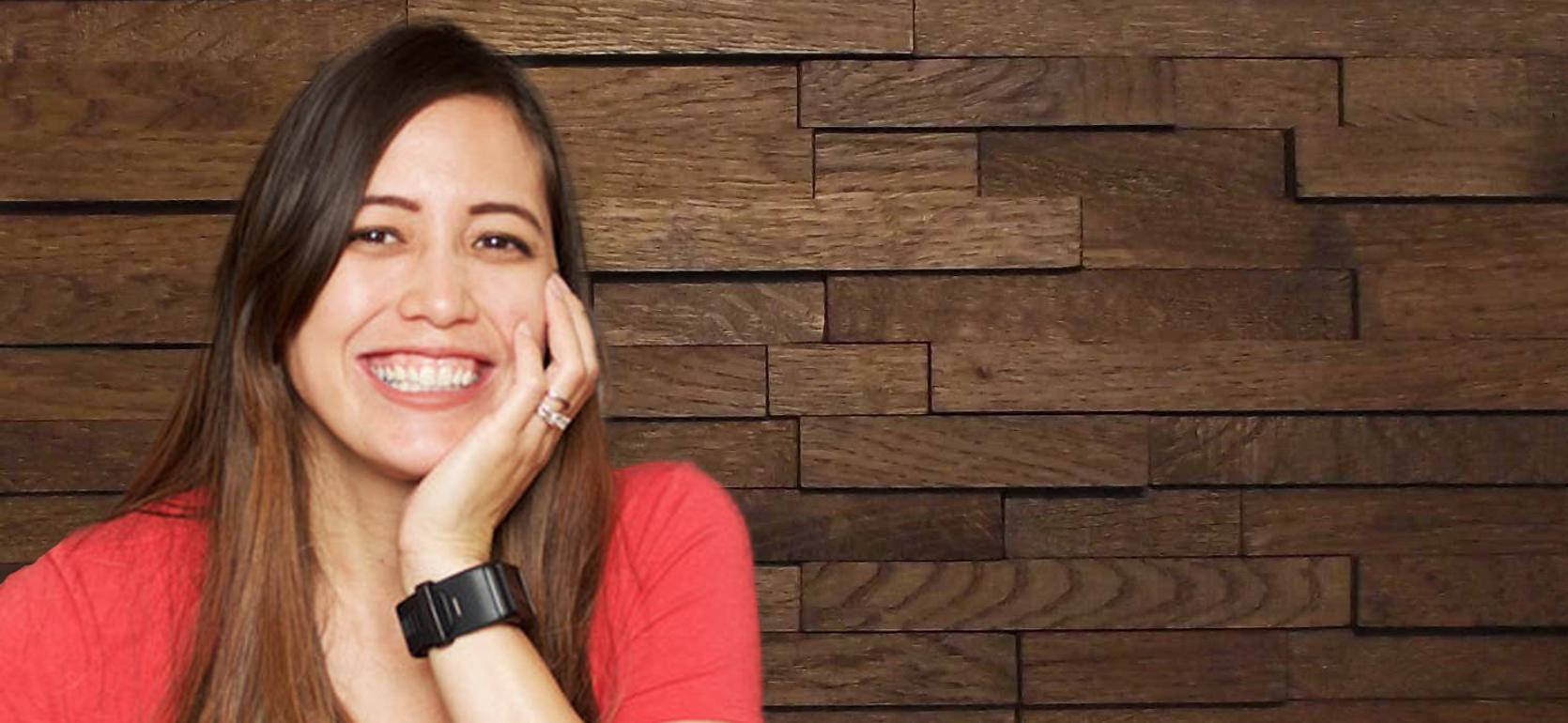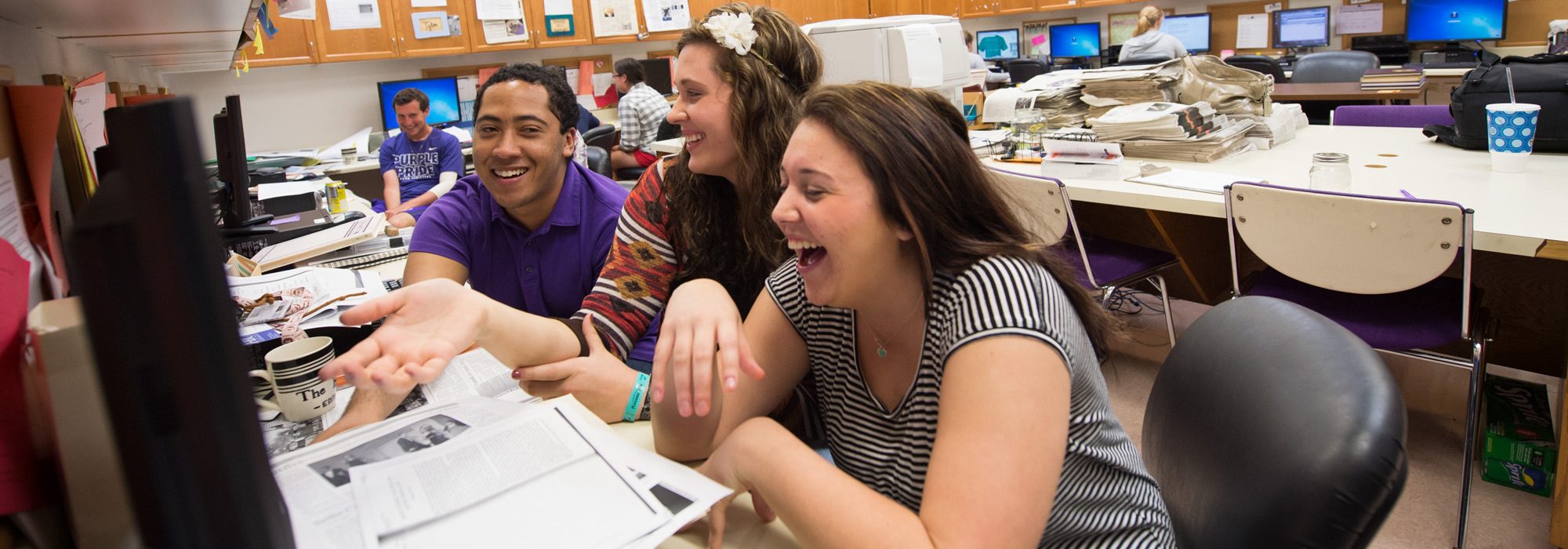Degree in Journalism | Journalism Program
The Journalism program works to produce multimedia communications with high ethical standards. Writing courses provide a solid base for writing for all types of news media, from print to broadcasting, while students have the opportunity to publish multimedia in the student newspaper, The Bells, and its online site from the start of their program. Advanced writing classes also provide material to post on students’ self-produced websites. Photojournalism classes concentrate on still image storytelling with both single and multi-photo packages, while the broadcasting courses give students practice with video news production along with experience reporting on camera. Students in these courses use software programs like Photoshop and Premiere.

Rachel Stepanov
Student
�鶹��Ƶֱ�� is more than just a place. �鶹��Ƶֱ�� is a family. From the time I stepped on campus, I felt accepted and valued. I am forever changed because I belong to the community that is �鶹��Ƶֱ��.
Rachel Stepanov
Student
Why should I choose Journalism?
Students who go through our Journalism program will be working in a career that continually educates in endless areas, provides a platform for self-expression, provides opportunities for being close to news that is making the world change while meeting interesting people and going to interesting places, while also being able to garner some notable attention for themselves and their work in communications.
What are some journalism courses I will take?
- Photojournalism
- Broadcasting
- Intro to Media Writing
- Advanced Media Writing and Design
- Intro to Mass Media
- Intro to Communication

Defending the Deaf
Denise Marcos graduated from the Mass Communication Journalism track in 2008. Upon graduating, she began working as the editor-in-chief for San Antonio Weddings, a large South Texas wedding publication. Wanting to give back to the community, Denise joined Aid the Silent, a Texas-based nonprofit that helps deaf and hard-of-hearing children and teens receive equal access to social, educational, and spiritual opportunities. As the Executive Director, she develops the nonprofit’s four program areas: Deaf Resources, Deaf Education, Deaf Ministry, and Deaf Research. She also works to secure annual budgets and fundraising plans to grow and develop the programs. Calling back on her journalism roots, Denise also writes grants and sponsorship letters for Aid the Silent.
What are some career options?
With a degree in journalism, you can follow many career paths:
- Newspaper Reporter
- Broadcast Reporter
- Photographer
- Editor/Publisher
- Producer
- Camera Operator
- Sports Writer or Broadcaster
Who is hiring �鶹��Ƶֱ�� students?
�鶹��Ƶֱ�� Journalism students have found success in many different areas:
- Online News Media
- Newspaper Companies
- Magazine Companies
- Broadcast News Media
- Radio
- Public Relations Firms
- Government and Military Entities
Where can I go to grad school?
Many Journalism students have continued their education at these schools:
- American University
- Columbia Graduate School of Journalism
- Northwestern University
- UC Berkeley Graduate School of Journalism
Why study journalism at �鶹��Ƶֱ��?
Students who study Mass Communication – Journalism have the opportunity to apply and hone their knowledge and skills by working on The Bells – the student news. Published bi-weekly in print form, The Bells presents campus, local, national, and international news stories which are of interest to the �鶹��Ƶֱ�� community. With a corresponding electronic media site, , students are able to present various news events, editorials, and features almost daily. Students can work as full staff (work-study), volunteers, or in relation to their upper-level courses.
The Mass Communication program requires internships that help students gather real-world experience for their professional growth, as well as for their resumes and portfolios. It is a flexible program that helps students specialize in their particular area of interest while getting a solid journalistic base. Some specialized interests have been sports writing or broadcasting, fashion photography for magazines, and video production for Christian messaging, as well as investigative news and sports photography.
Students in �鶹��Ƶֱ��’s Journalism program experience working on projects for print media and prepare to work begin producing for several media platforms, from newsprint to online and broadcast news, or information services. The program helps students develop and practice their skills so that by the time they graduate, they have participated with other journalists to produce media for publication/broadcast as well as for their portfolios. No matter what field journalism graduates go into, professionals with journalism degrees are respected for their ability to communicate for whomever they are working for in the future.
